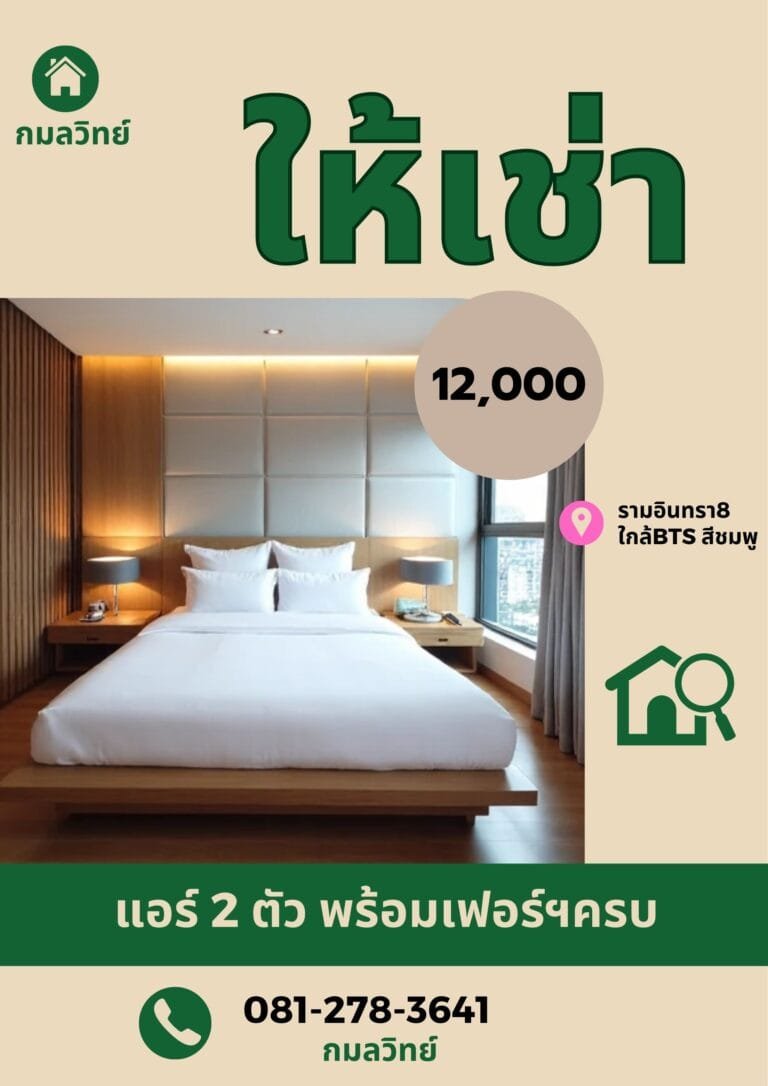The Ultimate Beginner’s Guide to Learning Thai Part I

Learning Thai: How to Say Thank You in Thai
Welcome to your essential guide on expressing gratitude in Thai! Whether you’re planning a vacation in Thailand or just starting your Thai language journey, learning to say “thank you” is one of the most important first steps. Thai people are known for their warm hospitality, and showing appreciation in their language will help you connect with locals and enhance your travel experience.

One unique aspect of Thai language is that men and women use different polite particles when speaking. When saying thank you:
In general, you can add the word มาก (mâag) which means “very much” or “a lot”. This transforms a simple thank you into thank you very much. Both men and women can say ขอบคุณมากครับ/ค่ะ kòorb kun mâag kráb/ kâ) to show greater appreciation.
When someone thanks you in Thai, there are two common polite responses you can use:
Thai Numbers 1-20
Counting numbers is essential for everyday situations like shopping, ordering food, or taking public transportation. This beginner-friendly lesson will help you confidently use Thai numbers in real-world situations.

The first step: Let’s count numbers 1-10 in Thai:
Unlike some Asian languages, Thai numbers follow a straightforward pattern that makes them relatively easy to learn. Once you master the numbers 1-10, you’ll quickly understand how to form numbers 11-20 using the same basic elements.
Numbers 11-19 follow a pattern: they start with สิบ (sìb) followed by the single digit
The only exception are 11, which uses สิบเอ็ด (sìb -èd) instead of สิบหนึ่ง sìb nùeng and number 20 uses ยี่สิบ (yêe- sìb), not สองสิบ (sŏorng – sìb)!
How to Say Hello in Thai
สวัสดี (sa-wàd-dee) – a simple word that opens doors to countless meaningful connections in Thailand. Understanding this greeting can help you transform yourself from a tourist into a respectful visitor in the Land of Smiles.

Many sources simply explain that สวัสดี (sa-wàd-dee) means “Hello!” However, this greeting contains profound meanings. It was created in the 1930s during the modernization of Thailand by combining Sanskrit-derived words:
สวัสดิ์ (svasti) which means blessing, prosperity, or well-being and ดี (di) which means good.
When you say สวัสดี (sa-wàd-dee), you’re wishing well-being or good fortune to the person you’re greeting. It’s like saying “good day” or “good wishes”, but it has become the standard all-purpose greeting in modern Thai language.
The complete greeting typically includes a polite particle based on the speaker’s gender:
This greeting is accompanied by the waay-gesture – placing your palms together at chest level and slightly bowing your head. It can be used at any time of day (morning, afternoon, or evening). For a more casual setting, you can simply say:
How to Say Goodbye in Thai
Knowing how to say a proper goodbye in Thai will help you leave lasting positive impressions throughout your journey in Thailand. Let’s discover how Thai goodbyes reveal hidden layers of friendship and respect – it’s more than just saying “Goodbye”!

Most common:
Note: In Thai, สวัสดีครับ/ค่ะ(sa-wàd-dee kráb/kâ) can be used for both greeting and farewell.
Very casual goodbye (similar to “Bye-bye”):
For informal situations, you can simply add the polite particle kráb or kâ after ‘Bye bye’.
บ๊ายบายครับ/ค่ะ (Bye bye kráb/kâ)
Another common and friendly way to say goodbye when you expect to meet the person again. It’s casual but still polite, then say:
แล้วเจอกันครับ/ค่ะ (láew djoe gan kráb/kâ) – See you later/See you again!
Note: The formal goodbye phrase ลาก่อนครับ/ค่ะ (laa gòorn kráb/kâ) rarely appears in daily conversation – you’ll find it more often in old novels than in modern spoken Thai!
How to Say Good Morning in Thai
Unlike Westerners who say, “good morning”, Thai people don’t greet their family members with สวัสดีครับ/ค่ะ(sa-wàd-dee kráb/kâ) when they wake up. Instead, they show care by asking questions like “Did you sleep well?” หลับสบายไหม (làb sa-baay mái), “Are you hungry yet?” หิวรึยัง (hĭw rúe yang), or “What would you like to eat?” อยากจะกินอะไร (yàag dja gin arai)

Saying สวัสดีครับ/ค่ะ (sa-wàd-dee kráb/kâ) is appropriate in common morning situations, such as entering shops or restaurants, meeting colleagues at work, or greeting customers for morning appointments.
Notes: While many books and websites correctly state that อรุณสวัสดิ์ (arun sa-wàd) means “Good morning”,’ you should avoid using this phrase. It’s an archaic expression that appears in classical literature but is never used by Thai people in modern conversation.
How to Say Happy New Year in Thai
Did you know Thailand celebrates not just one, but two New Years? Learn how to say Happy New Year in Thai for both occasions – the traditional Thai New Year in April (Songkran) and the international New Year celebrations. Knowing the right phrases will help you join these joyous celebrations authentically!

For International New Year (January 1st):
Happy New Year! สวัสดีปีใหม่ครับ/ค่ะ (sa-wàd-dee bpee mái kráb/kâ)
Break down of the phrase:
สวัสดี (sa-wàd-dee) = Hello/Greetings
ปีใหม่ (bpee mài) = New Year
For Thai New Year (Songkran – April 13th):
สุขสันต์วันสงกรานต์ครับ/ค่ะ (sùg-săn wan Songkran kráb/kâ)
Break down of the phrase:
สุขสันต์ (sùg-săn) = happy
วัน (wan) = day
สงกรานต์ (Songkran) = Thai New Year festival
Here are the blessing phrases you can use during New Year, Songkran, or even birthday celebrations:
Wishing you lots of happiness. ขอให้มีความสุขมากๆ (kŏor hâi mee kwam sùg mâag mâag)
Good luck. ขอให้โชคดี (kŏor hâi chŏog dee)
Good health ขอให้สุขภาพแข็งแรง (kŏor hâi sùg-ka-pâab kăeng-raeng) Wish you wealth ขอให้ร่ำรวย (kŏor hâi râm-ruay)
How to Order Beer in Thai
Picture yourself at a bustling night market or a beachside restaurant in Thailand. Knowing how to order a cold beer in Thai will not only make your experience more authentic but also help you connect with locals and fellow travelers alike.

Basic Phrases for Ordering Beer:
I want beer. ขอเบียร์ครับ/ค่ะ (kŏor bia kráb/kâ)
Specifying Quantity and Sizes:
One bottle of beer, please. ขอเบียร์หนึ่งขวดครับ/ค่ะ (kŏor bia nèung kùad kráb/kâ)
Two bottles of beer, please. ขอเบียร์สองขวดครับ/ค่ะ (kŏor bia sŏorng kùad kráb/ kâ)
Large bottle ขวดใหญ่ (kùad yài)
Small bottle ขวดเล็ก (kùad lég)
Common Beer Brands in Thai:
สิงห์ (sĭng) – Singha Beer
ช้าง (cháang) – Chang Beer
ลีโอ (Lee-o) – Leo Beer
Notes: The Thai word ขอ (kŏor) makes requests more polite. In Thailand, beer is often served with ice! (But if you prefer cold beer without ice, then say “ขอเบียร์เย็นๆ ไม่เอาน้ำแข็ง” (kŏor beer yen-yen mâi ao náam-kăeng!)”
Breaking it down:
How to Say Happy Birthday in Thai
Birthdays in Thailand blend modern global celebrations with unique cultural traditions. Whether you’re celebrating with Thai friends or joining a local birthday party, knowing the right birthday wishes and customs will help you share in these special moments authentically.

Main Birthday Greeting:
Happy Birthday! สุขสันต์วันเกิดครับ/ค่ะ (sùg-săn wan-gòed kráb/kâ)
Break down of the phrase:
Thai birthday wishes and blessings are covered in our New Year greetings lesson. It’s common to give birthday blessings using phrases starting with ขอให้ kŏor hâi, meaning “may you have” or “wishing you”, for Example, Wishing you lots of happiness ขอให้มีความสุขมากๆ (kŏor hâi mee kwam sùg mâag mâag).
How to Say Delicious in Thai
Exploring Thai cuisine? Learning to express your appreciation for the amazing flavors you’ll encounter is a skill that will delight local chefs and food vendors. Thai people take great pride in their culinary heritage, and a sincere compliment about their food can create instant connections.

อร่อย (aròy) is the most common and basic way to say “delicious”. It’s the magic word that lights up faces across Thailand. But why stop there? When that Pad Thai absolutely blows your mind, kick it up a notch with saying อร่อยมาก (aròy mâag) “Very delicious”.
Having a casual moment? Then you can say อร่อยจัง (aròy jang). It means “Oh wow, this is so delicious!”
And for that unforgettable bowl of Tom yum that’s simply the best you’ve ever had? That’s when you pull out อร่อยที่สุด (aròy tee sùd) “The most delicious!” It’s the ultimate food compliment that will make any Thai chef beam with pride.
“Enjoy your meal!” ทานให้อร่อยนะครับ/คะ (taan hăi aròy na kráb/ká)





